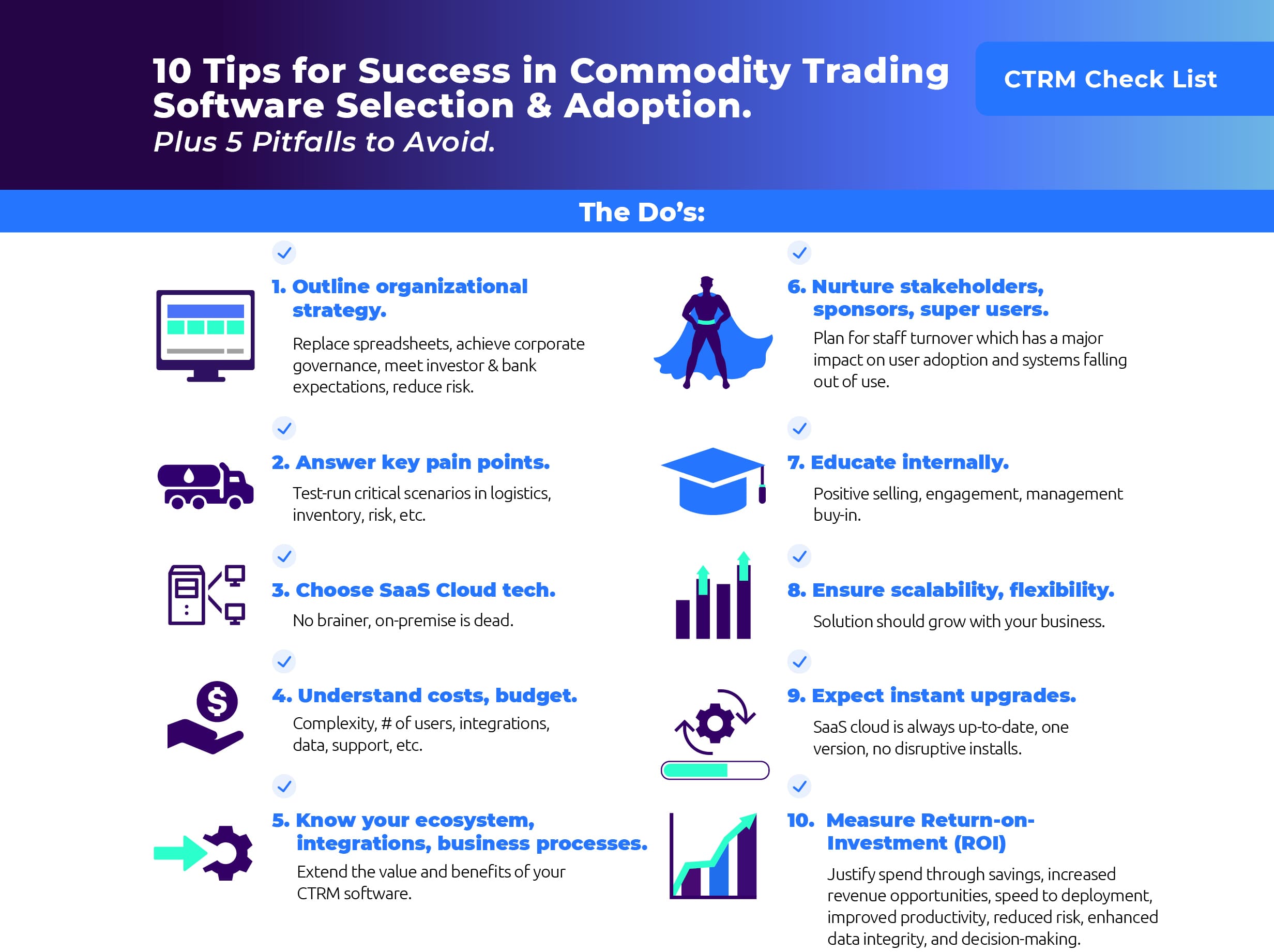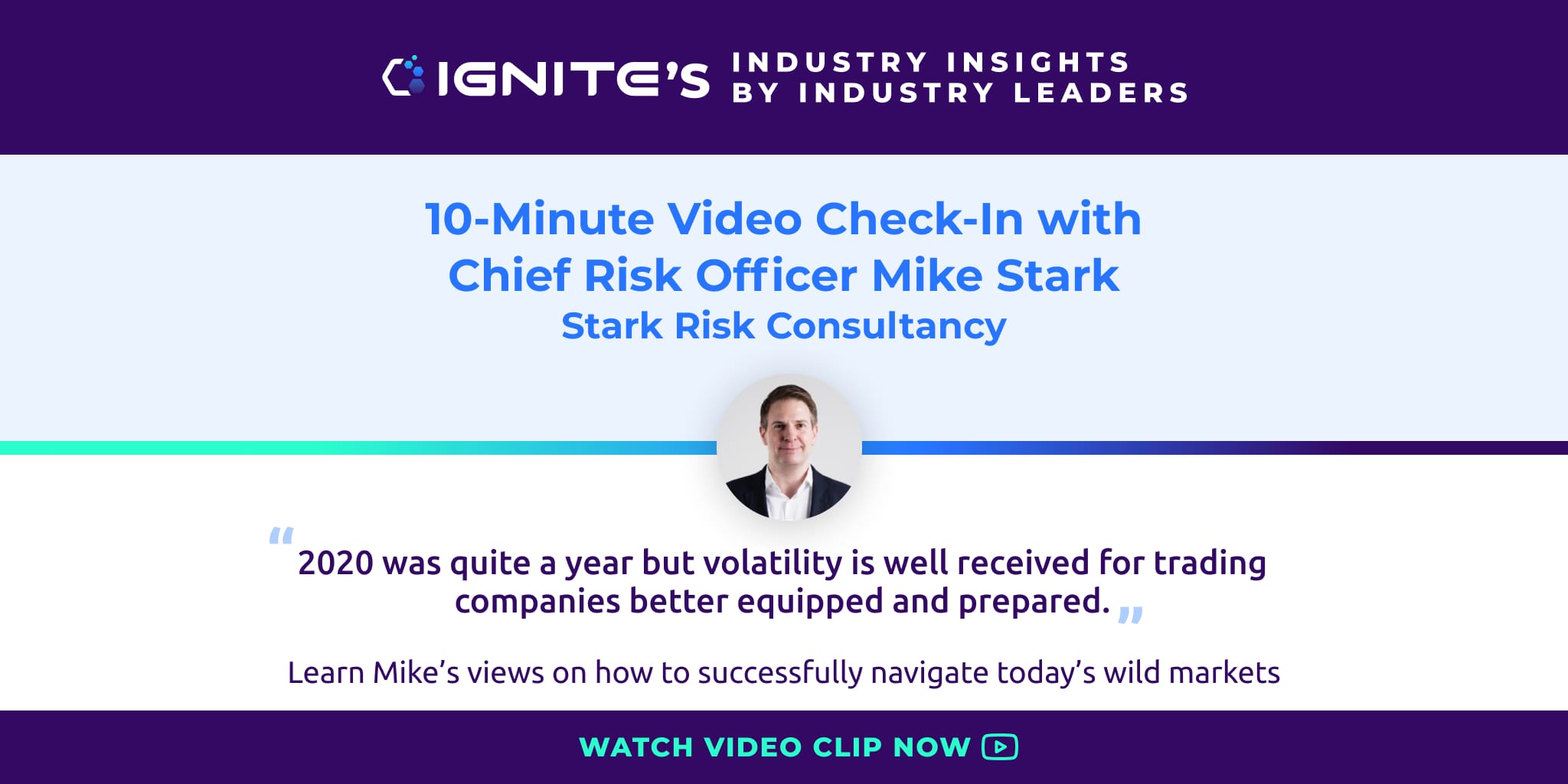APIs and business intelligence tools facilitate custom CTRM risk reports
API is an acronym for Application Programming Interface. An API is a software development tool that delivers a set of protocols for integrating software applications allowing them to connect and talk to each other. Many software companies build libraries of APIs which are dedicated URLs that return raw data responses that enable the connection point.
The real benefit is that once an API is created, it’s a secure, one-to-many, reusable gateway that can be repeatedly accessed by multiple clients. Clients can connect and enable communications between applications without the need for complex and custom coding. This saves time and money for IT teams and reduces the need for application development. APIs also allow companies to quickly, easily, and efficiently innovate when developing supplementary products which create a simplified and flexible means for expanding a product’s footprint within client organizations.
APIs play a major role in energy and commodity companies with large infrastructures and continuously changing business requirements. IGNITE supports a rapid development and deployment approach through its cloud-native application IGNITE CTRM. The platform is built to rely on connecting applications through APIs which help create a “client-first” culture where changing demands are swiftly satisfied, and clients can gain increased value out of their commodity trade and risk management software (CTRM).
Subscribe to the IGNITE Blog for more insights CLICK HERE.
DIY risk management reports with 3rd party BI toolsets

In trading, there are many common uses for APIs which connect infrastructures to enable the flow of data to easily, securely, and accurately pass through systems. One example is the integration between exchanges and market data terminals to CTRM software. This is important in trading, as it streams pricing data for use in marked-to-market (MTM) accounting, scenario analysis, and settlement. Another example is between ERP and CTRM systems, such as SAP, Oracle, and Dynamics using the customer’s chosen middleware toolkit for deep and complex integrations.
IGNITE has built APIs for its clients to create a self-service experience for risk managers and other professionals to build custom “do-it-yourself” (DIY) reports in 3rd party business intelligence (BI) tools for analytics and visualization.
IGNITE’s APIs facilitate the passing of large volumes of data both into and out of each client’s respective database. Users can then view, report, and model any outbound data using preferred analytical and BI tools. Results can then easily be shared with external users via email or shared storage allowing for improved strategy-based decision-making across the commodity value chain.
The ability to consume and leverage data available in such supportive APIs means that you don’t have to be a “techie” to build your own transactional, cash flow, P&L, exposure, and other non-standard reports, nor do you have to expend additional resources waiting to have reports built for you. And rest assured, that if you get stuck or have questions, IGNITE’s team of customer care specialists are available to help assist you with any related data extracts and reporting inquiries.
After you make the initial connection with the API, there is no additional setup or configuration; existing reports are maintained, and data is dynamically refreshed and synchronized on-demand using the most recent and up-to-date data from IGNITE CTRM.
Most other CTRM solutions require the vendor or 3rd-party consultants to create custom reports because of the sheer magnitude and complexity of their database systems. These systems are not intuitive and are certainly not set up for simple queries that users can create and issue on their own. This level of difficulty and obscurity of data is undoubtedly confusing and becomes time-consuming and costly. IGNITE solves these issues for its clients with its ever-growing library of plug-and-play APIs which allow for more expanded features, business intelligence, and analytics capabilities.
About The Author:
Martin is an independent consultant experienced in implementing and supporting trade and risk management software systems, business processes, and data for multiple commodities including oil, iron ore, coal, metals and concentrates. Martin also has the vantage point of being an ACCA accountant, so he fundamentally understands accounting-related requirements.



